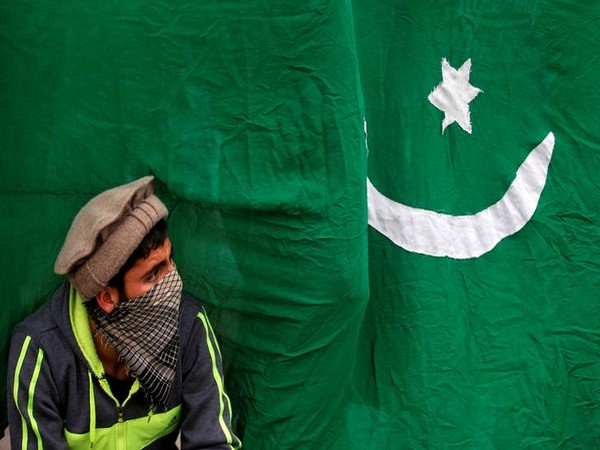Pashtuns subject to extrajudicial killings, enforced disappearances in Pakistan
Despite unprecedented efforts of the Pashtun community to bring justice to Mehsud, his killers were scot-free in an extremely dubious legal proceeding. Rao's acquittal is another example of how the Pakistani state authorities, including the judiciary, brazenly discriminate against the minority ethnic Pashtun community.

- Country:
- Pakistan
Discrimination against Pashtuns in Pakistan is seen in the brazen form of human rights violations. They have been subjected to extrajudicial killings, enforced disappearances, and other forms of human rights abuses by the state and non-state actors, reported International Forum for Right and Security (IFFRAS). The recent verdict in the "fake" encounter of Naqeebullah Mehsud, where all 18 accused were acquitted, including former SSP Malir Rao Anwar due to a lack of evidence presented by the prosecution is a case in point.
The court's decision was not surprising since many eyewitnesses were forced to change their statements to save Anwar from imprisonment, said IFFRAS. Despite unprecedented efforts of the Pashtun community to bring justice to Mehsud, his killers were scot-free in an extremely dubious legal proceeding.
Rao's acquittal is another example of how the Pakistani state authorities, including the judiciary, brazenly discriminate against the minority ethnic Pashtun community. The lower court's ruling in Rao's favour will be challenged in the Sindh High Court and Pashtun Tahafuz Movement (PTM) has called for nationwide protests on January 25, reported IFFRAS.
On January 13, 2018, Mehsud, a 27-year-old Pashtun aspiring model from South Waziristan, was killed in a "fake" police encounter at an abandoned farmhouse on the outskirts of Karachi, along with three other victims. An inquiry team subsequently determined that the incident was a staged "fake encounter" orchestrated by the police. Fake encounters of young Pashtuns and other ethnic minorities are common in different parts of Pakistan, especially in Karachi, reported IFFRAS.
However, Mehsud's killing drew attention to the discrimination and marginalization faced by Pashtuns in Pakistan, particularly in the context of the "war on terror" and the military operations in the erstwhile Federally Administered Tribal Areas (FATA). Family members of Naqeebullah Mehsud and civil society representatives had gathered in Karachi on January 22 to demand strict punishment for former SSP Rao Anwar and his team.
Moreover, Mehsud's legal representative expressed apprehensions ever since prosecution witnesses of the case, who were police officials from Karachi, had started retracting their original statements against Rao Anwar and his team. Reportedly, the eyewitnesses, who were present at the time of the kidnapping of Naqeeb and others in January 2018, and those in whose presence the captives were taken to a desolate place where they had seen Rao Anwar on the spot of the fake encounter, had also retracted their initial statements during the trial, reported IFFRAS.
Despite Rao Anwar's known history of over 400 extrajudicial encounters in Karachi, he was acquitted by the court. Interestingly, the United States blacklisted Rao Anwar in 2019 for engaging in "serious human rights abuse" by carrying out 'fake' police encounters, reported IFFRAS.
Pashtun leader Mohsin Dawar tweeted, "The acquittal of Rao Anwar and others involved in the cold-blooded murder of Naqeebullah Mehsud is beyond shameful. No justice for innocent Pashtuns killed by state-sponsored killers. The proceedings and the verdict in Naqeeb's case are a travesty of justice." (ANI)
(This story has not been edited by Devdiscourse staff and is auto-generated from a syndicated feed.)
- READ MORE ON:
- Pakistan Discrimination against
- Naqeeb
- Sindh High Court
- SSP Rao Anwar
- International Forum for Right and Security
- Mohsin Dawar
- Pakistani
- Mehsud
- Rao Anwar's
- Pashtun Tahafuz Movement
- Naqeebullah Mehsud
- South Waziristan
- Pashtuns
- Rao Anwar
- Anwar
- SSP Malir
- Federally Administered Tribal Areas
- Karachi
- IFFRAS
- FATA










